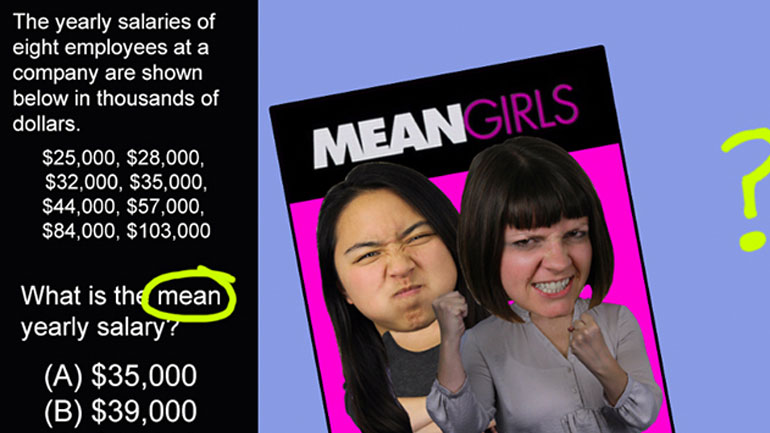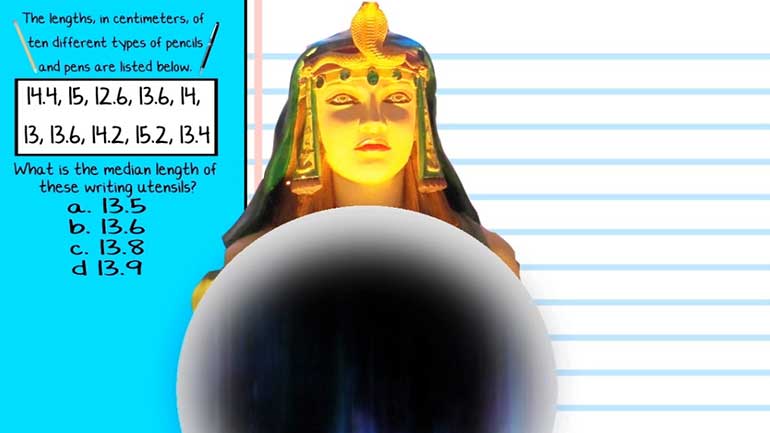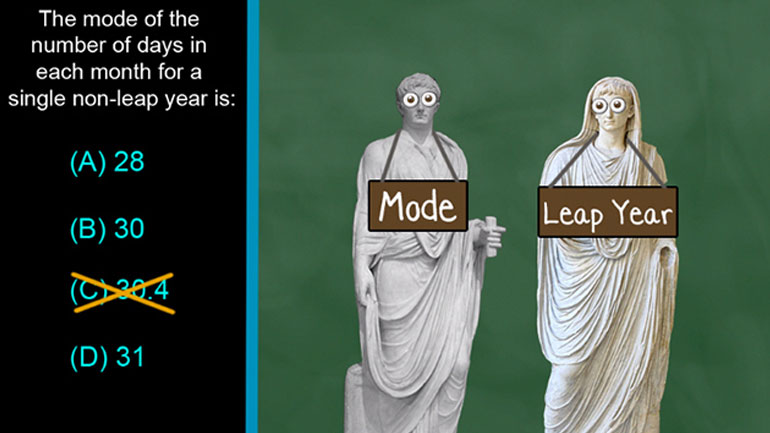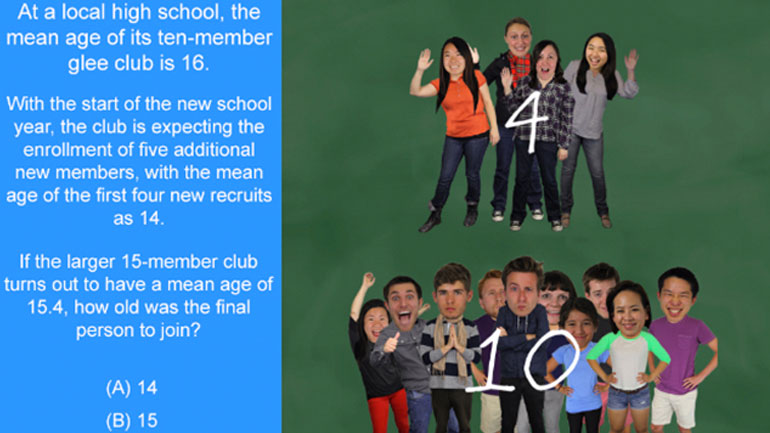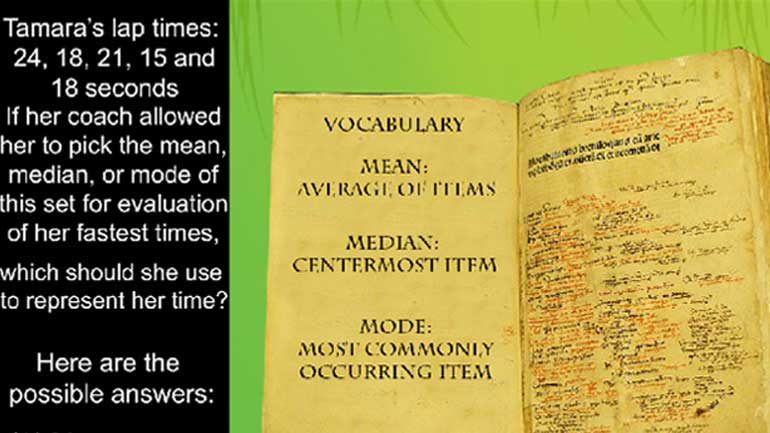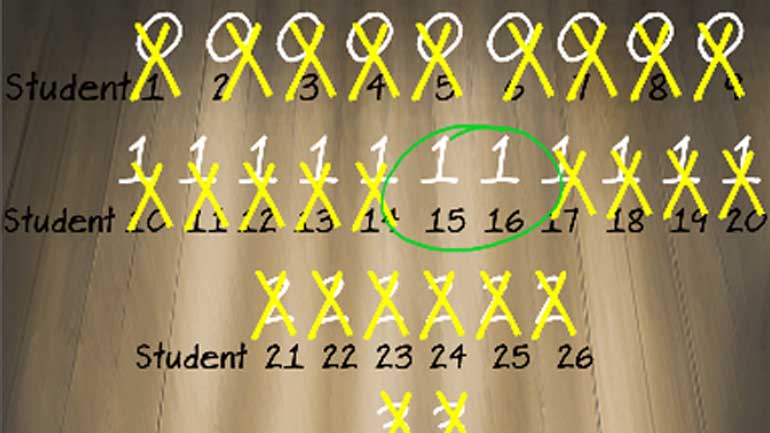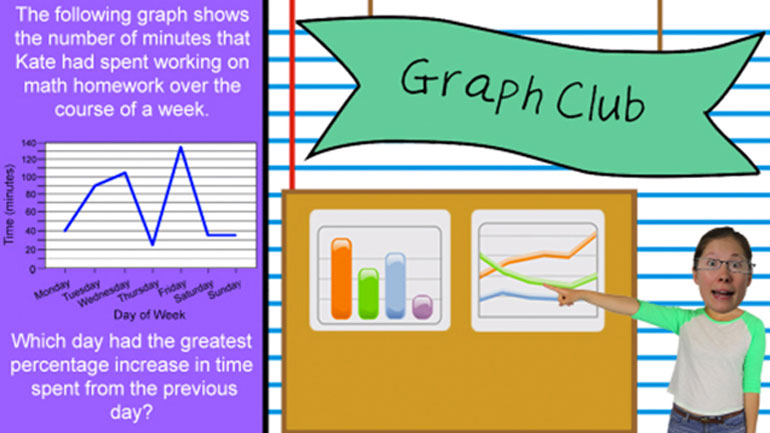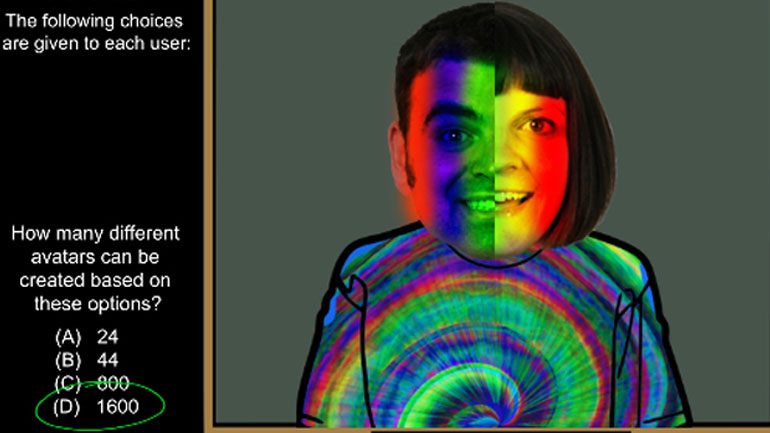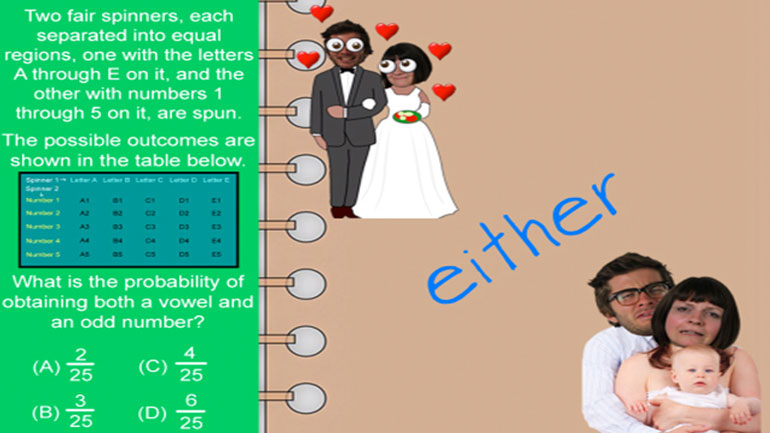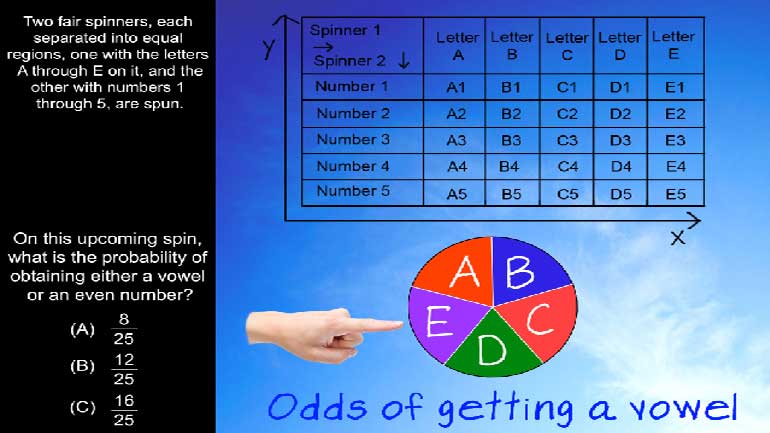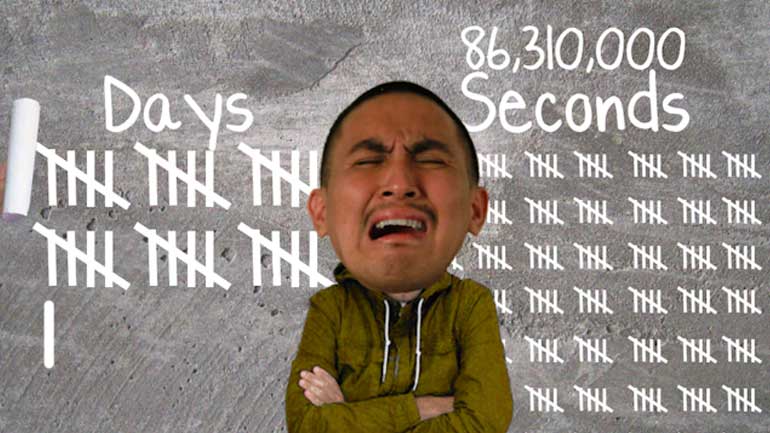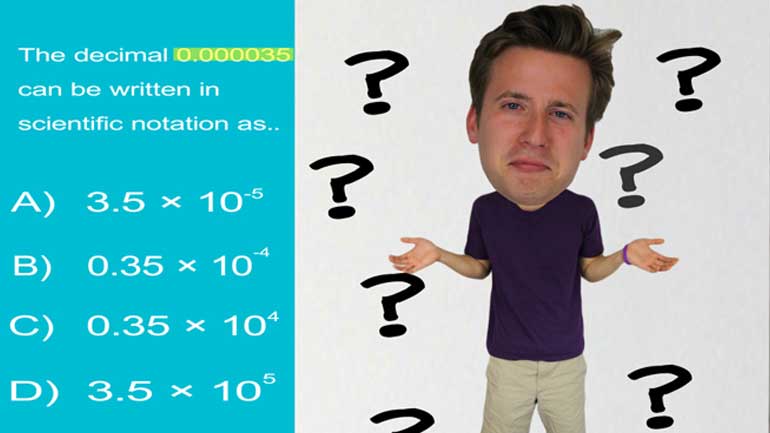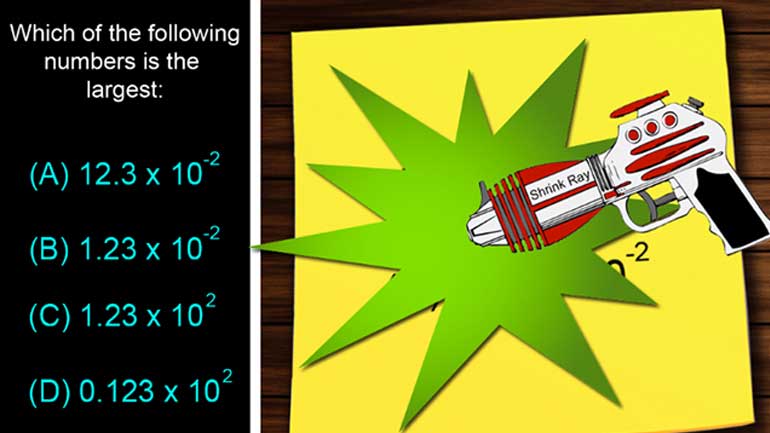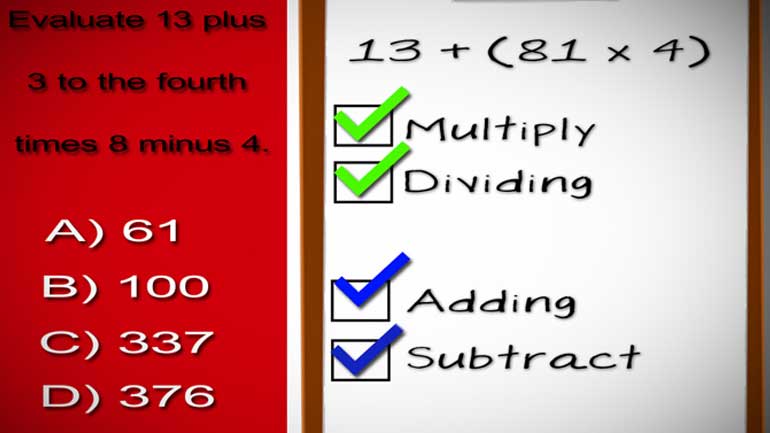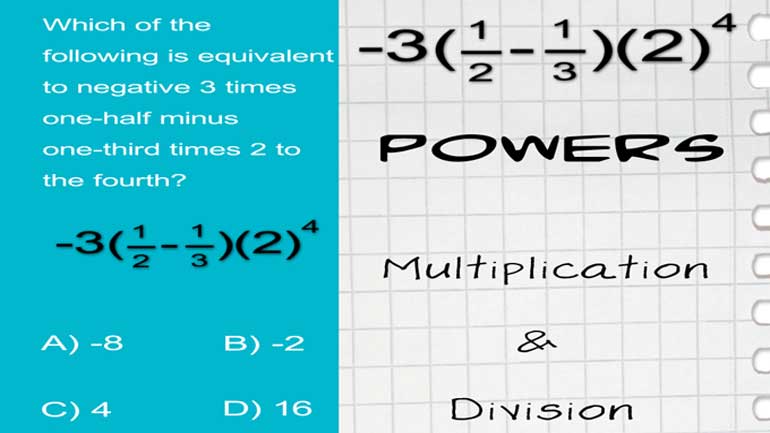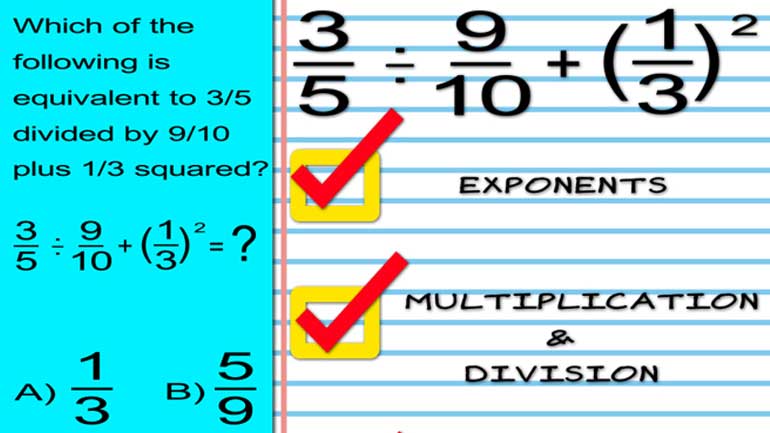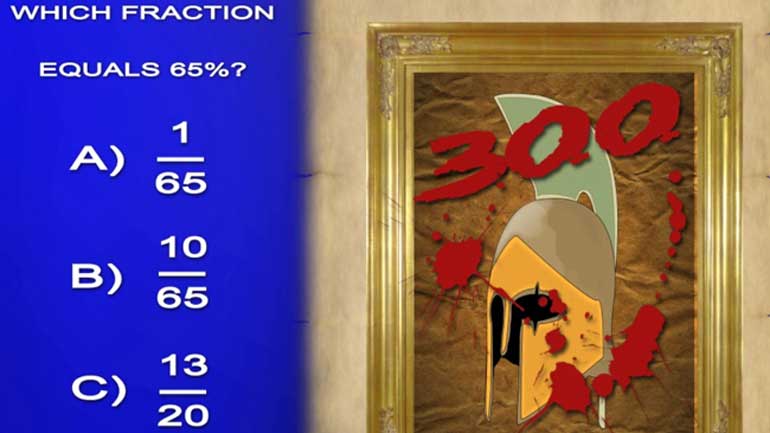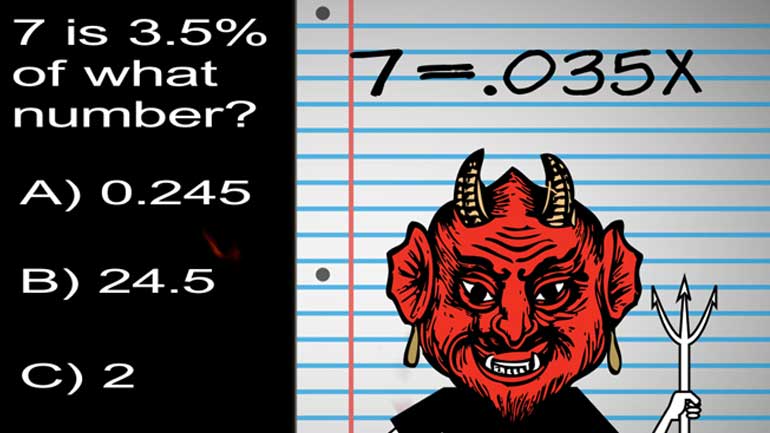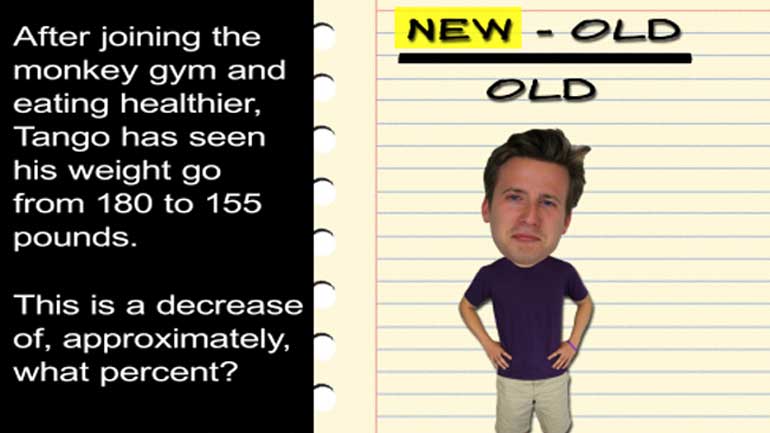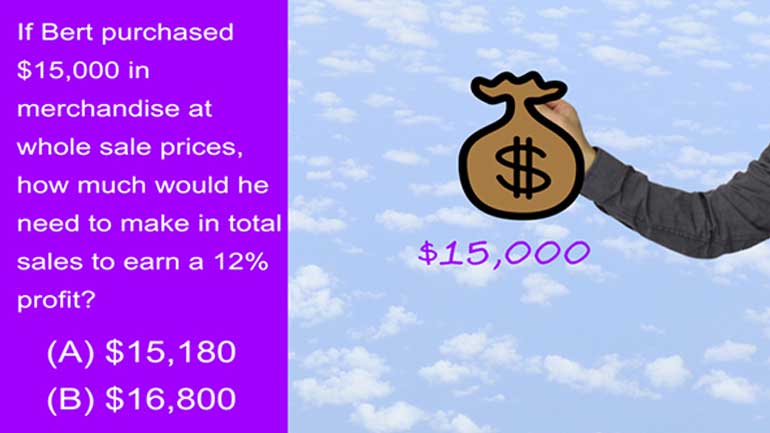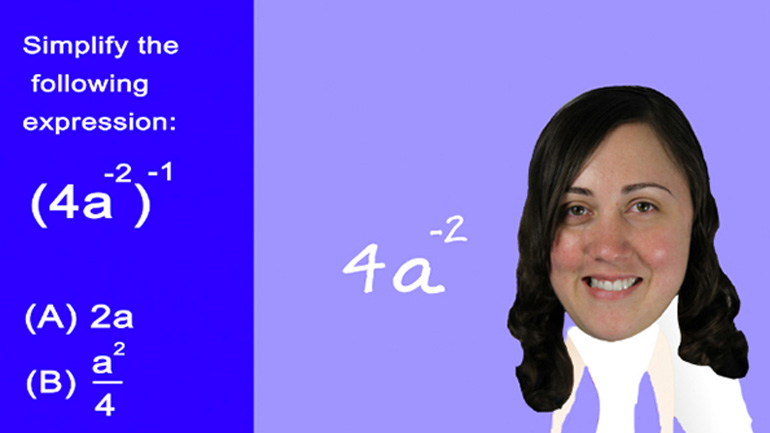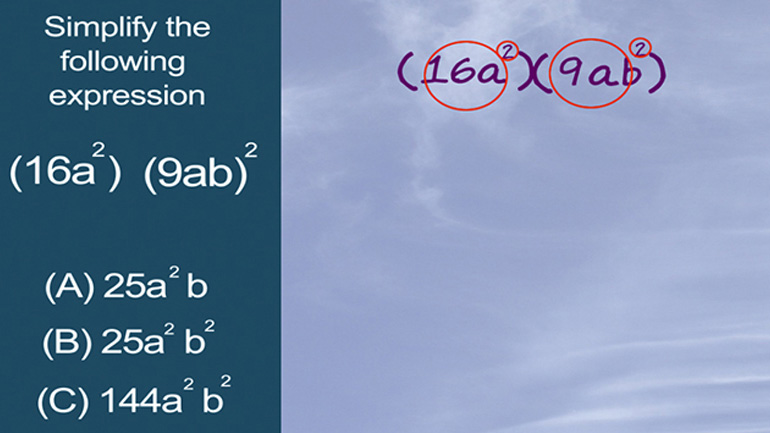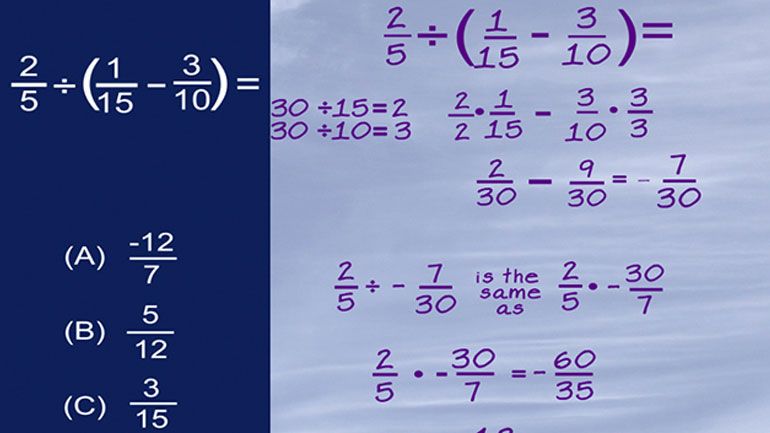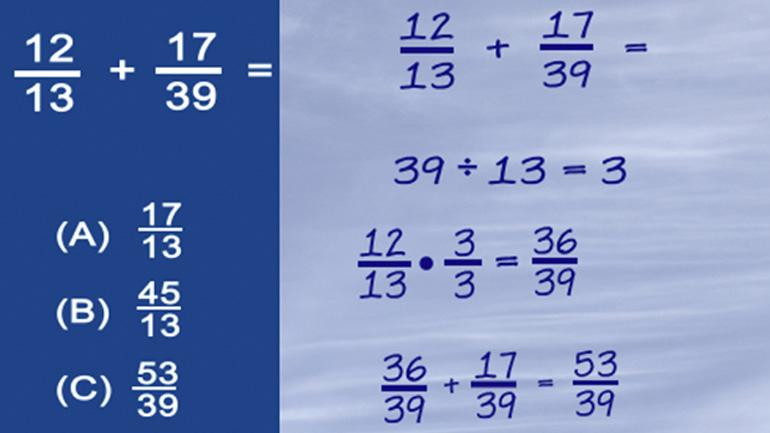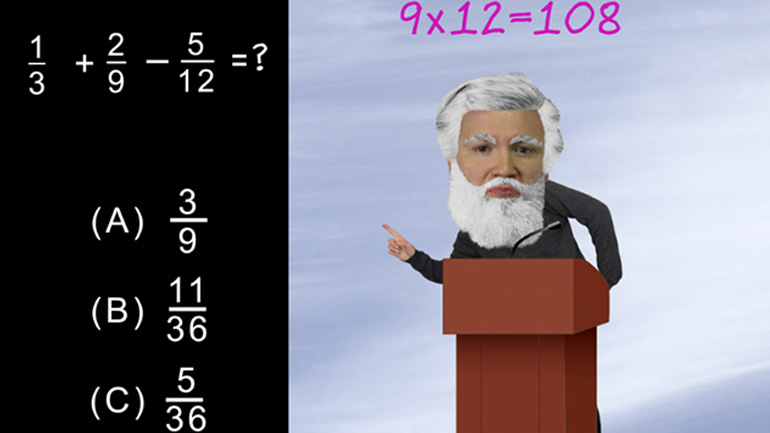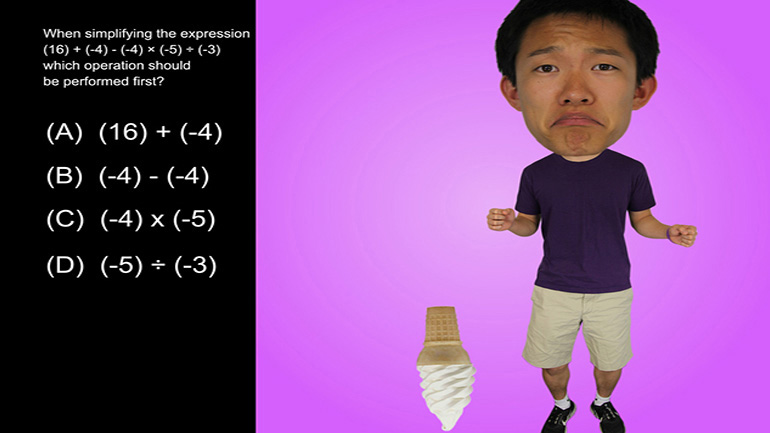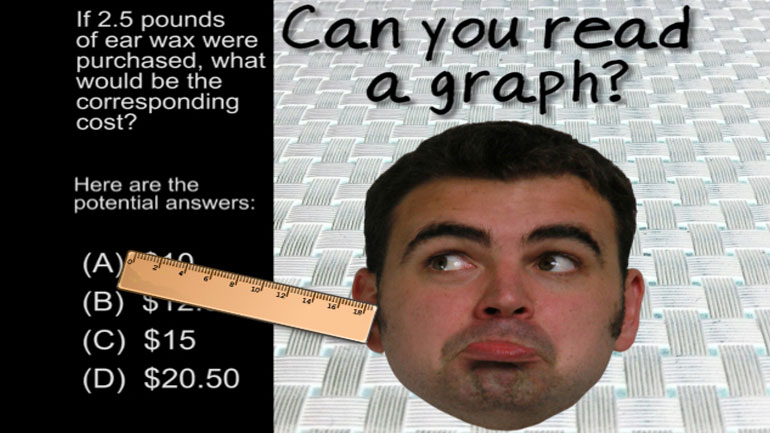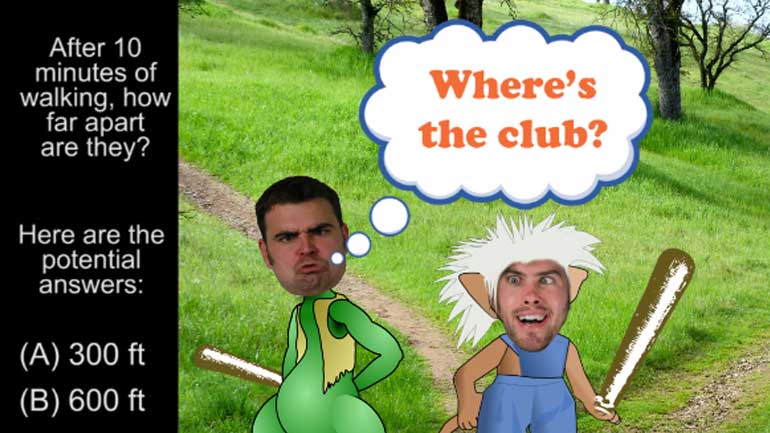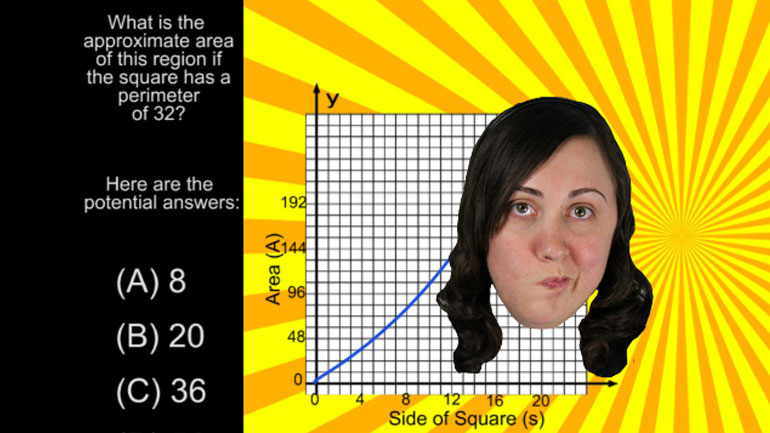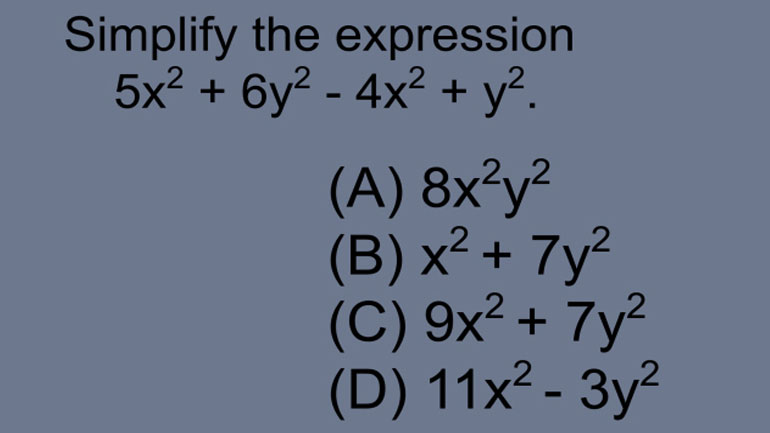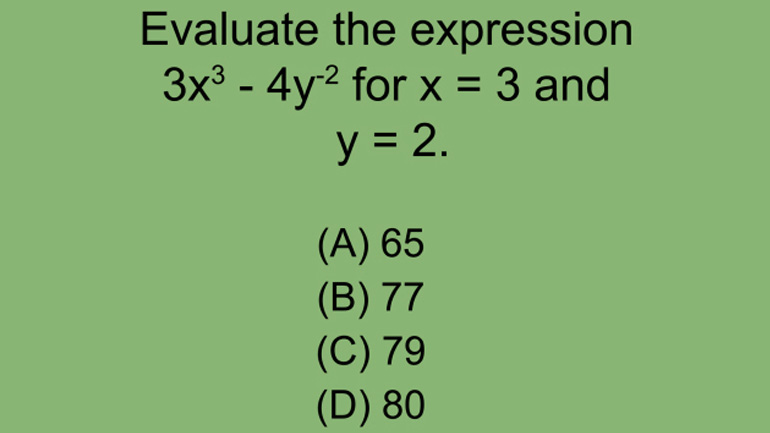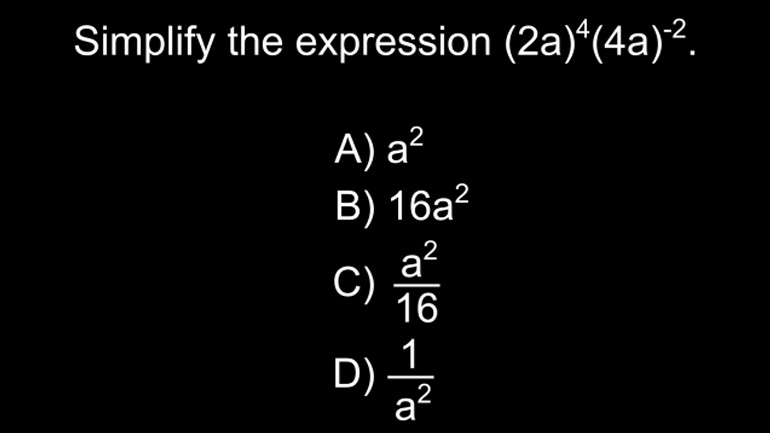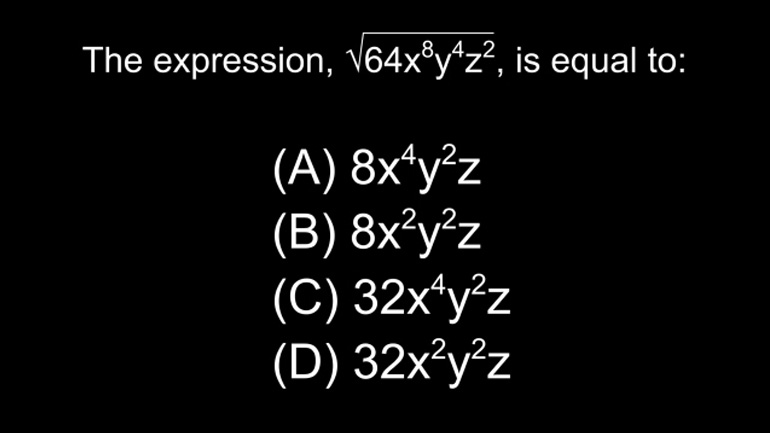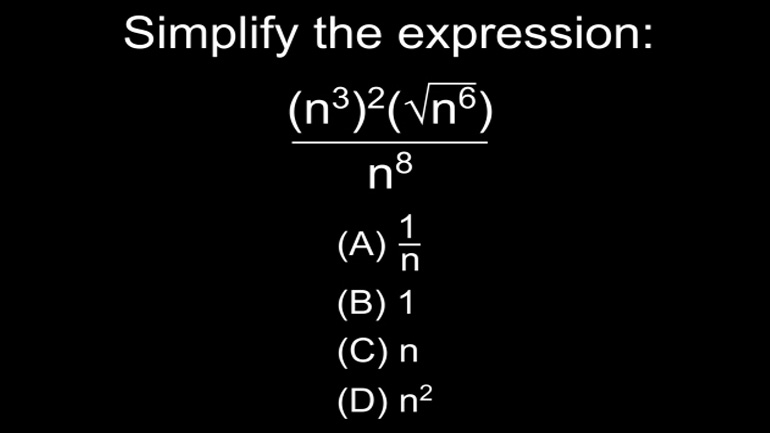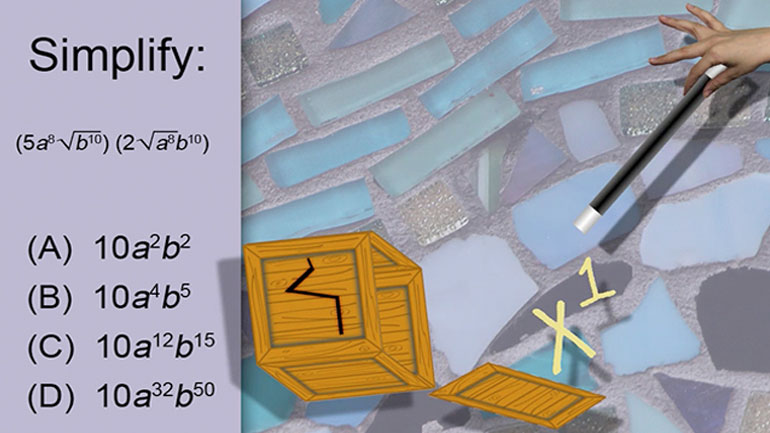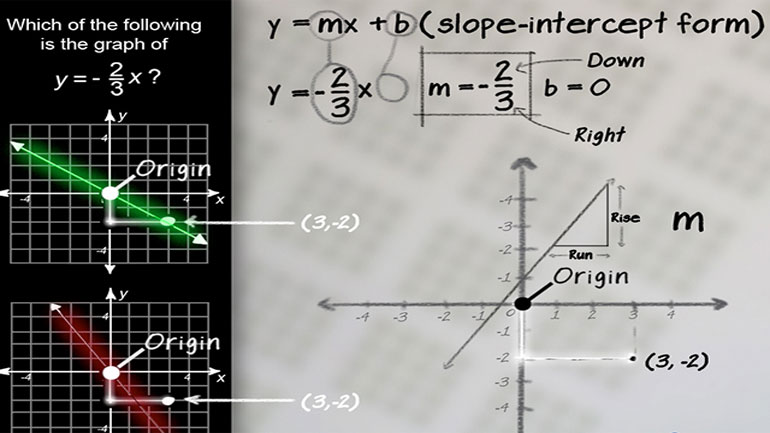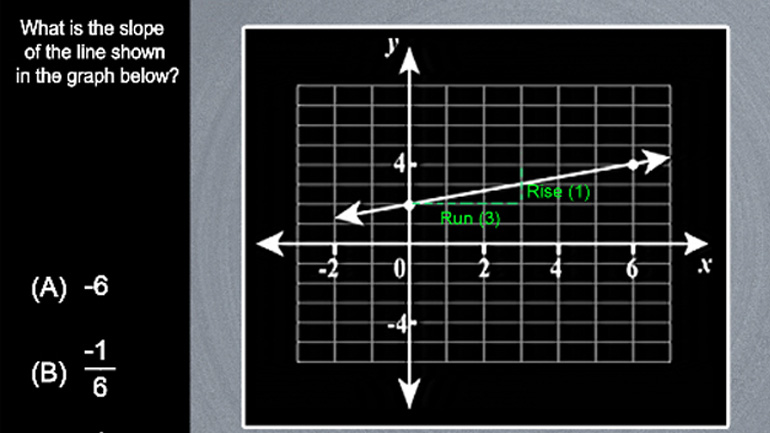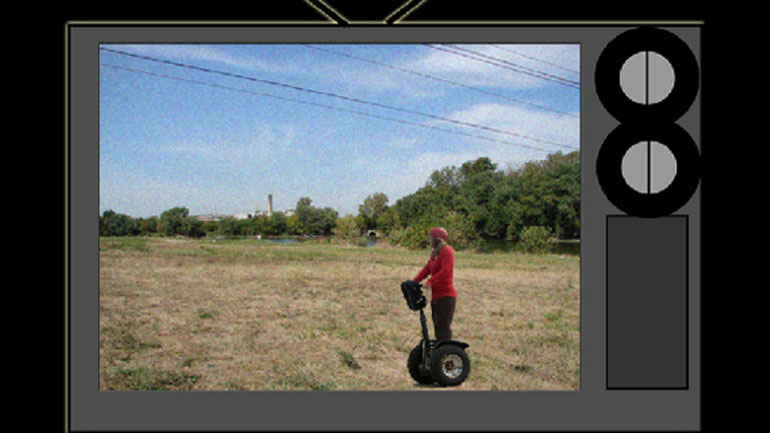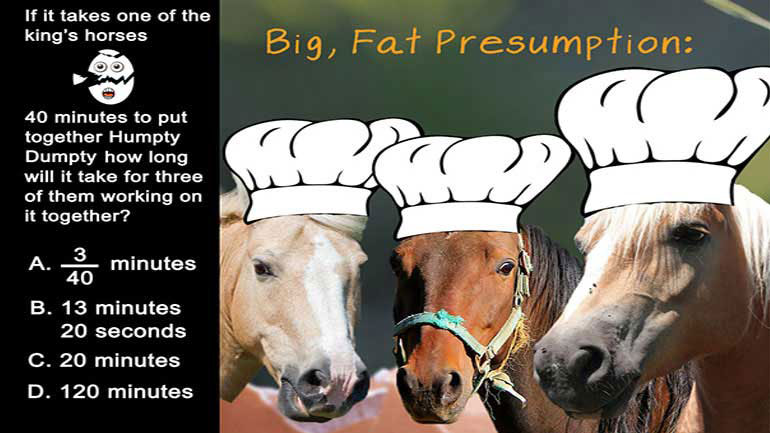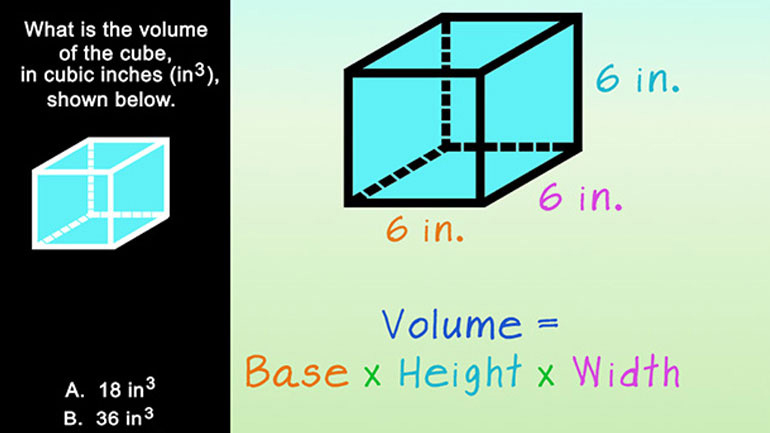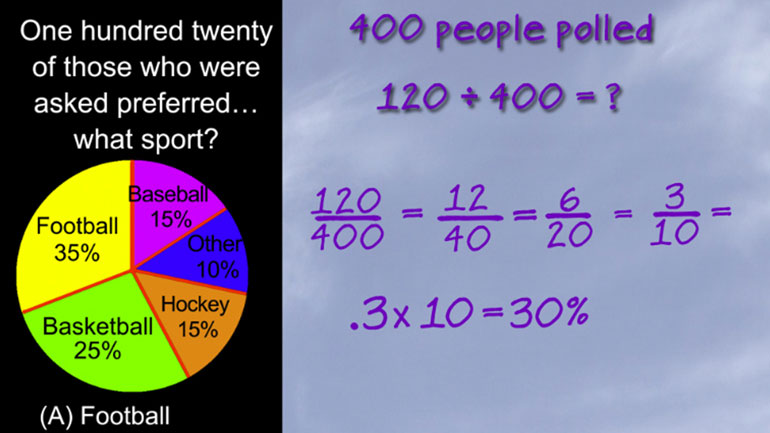ShmoopTube
Where Monty Python meets your 10th grade teacher.
Search Thousands of Shmoop Videos
CAHSEE Math Videos 210 videos
Statistics, Data, and Probability I: Drill Set 1, Problem 1. What is the mean yearly salary?
Statistics, Data, and Probability I: Drill Set 1, Problem 2. What is the median length of these writing utensils?
CAHSEE Math Statistics, Data, and Probability I: Drill Set 1, Problem 3. The mode of the number of days in each month for a single non-leap year is...
CAHSEE Math 3.5 Statistics, Data, and Probability I 218 Views
Share It!
Description:
Statistics, Data, and Probability I: Drill Set 3, Problem 5. What is the probability that the sum of the two rolls adds up to 9?
Transcript
- 00:03
Here's an unshmoopy question you'll find on an exam somewhere, somewhere in life...
- 00:07
Kerry rolls a fair-numbered cube twice.
- 00:11
The possible outcomes are shown in the following tree diagram.
- 00:14
What is the probability that the sum of the two rolls adds up to 9?
- 00:20
And here are the potential answers:
Full Transcript
- 00:27
OK, so what's this question asking?
- 00:29
Well, first we have to know what a "fair numbered cube" is, right?
- 00:33
Is that a cube that doesn't cheat?
- 00:36
Nah... it's just a $5 word for a die. That is, it has numbers 1 through 6 on it...
- 00:42
or pips that represent those numbers...
- 00:45
...and its... fair. That is, each number has the same odds of being rolled.
- 00:50
There are a few ways of getting to the right answer but let's start with the brute force
- 00:53
method and quickly list all of the possibilities -- check 'em out here:
- 00:59
The visual chart they give us can easily get us to the right answer if we just manually
- 01:03
add the numbers to get all the 9s -- so let's note the circled numbers.
- 01:08
Some easy observations help speed us to our answer here -- first, if we roll a 1 or a
- 01:13
2 on the first roll, we'll NEVER get to a 9 so we can just... throw 'em out.
- 01:20
We have a TOTAL of 36 possible rolls here. So all we have to do is hunt through the remaining
- 01:25
rolls and add up how many combinations get us to 9.
- 01:28
That is... if we roll a 3 on the first roll,
- 01:31
the way we get to a 9 is by having the second roll be a 6.
- 01:35
If the first roll is a 4, we need a 5 to get there. And... so on --
- 01:38
So we have: A first roll of 3 plus a 6 A first roll of 4 plus a 5
- 01:43
A first roll of 5 plus a 4 And a first roll of 6 plus a 3
- 01:48
So there we go. Four possible ways of making a 9 with two rolls...
- 01:53
...or a 4 out of 36 chance of making a 9 on two rolls.
- 01:57
Four-thirty-sixths simplifies to one-ninth... or a bit over 10%.
- 02:01
All we're really concerned about though... is that we found our answer.
- 02:05
Choice B.
- 02:06
Unfortunately, this story has a sad ending...
- 02:09
...as it turns out Kerry was too young to be gambling.
- 02:12
Hang on, Kerry. We'll get you a good lawyer.
Related Videos
CAHSEE Math: Algebra and Functions Drill 5, Problem 3. Solve the equation.
Statistics, Data, and Probability I: Drill Set 3, Problem 4. How many different avatars can be created based on the given options?
Statistics, Data, and Probability II Drill 3 Problem 2. Which two sports together make up for the preferences of more than half of all those w...
Statistics, Data, and Probability II Drill 3 Problem 3. One hundred twenty of those who were asked preferred what sport?
